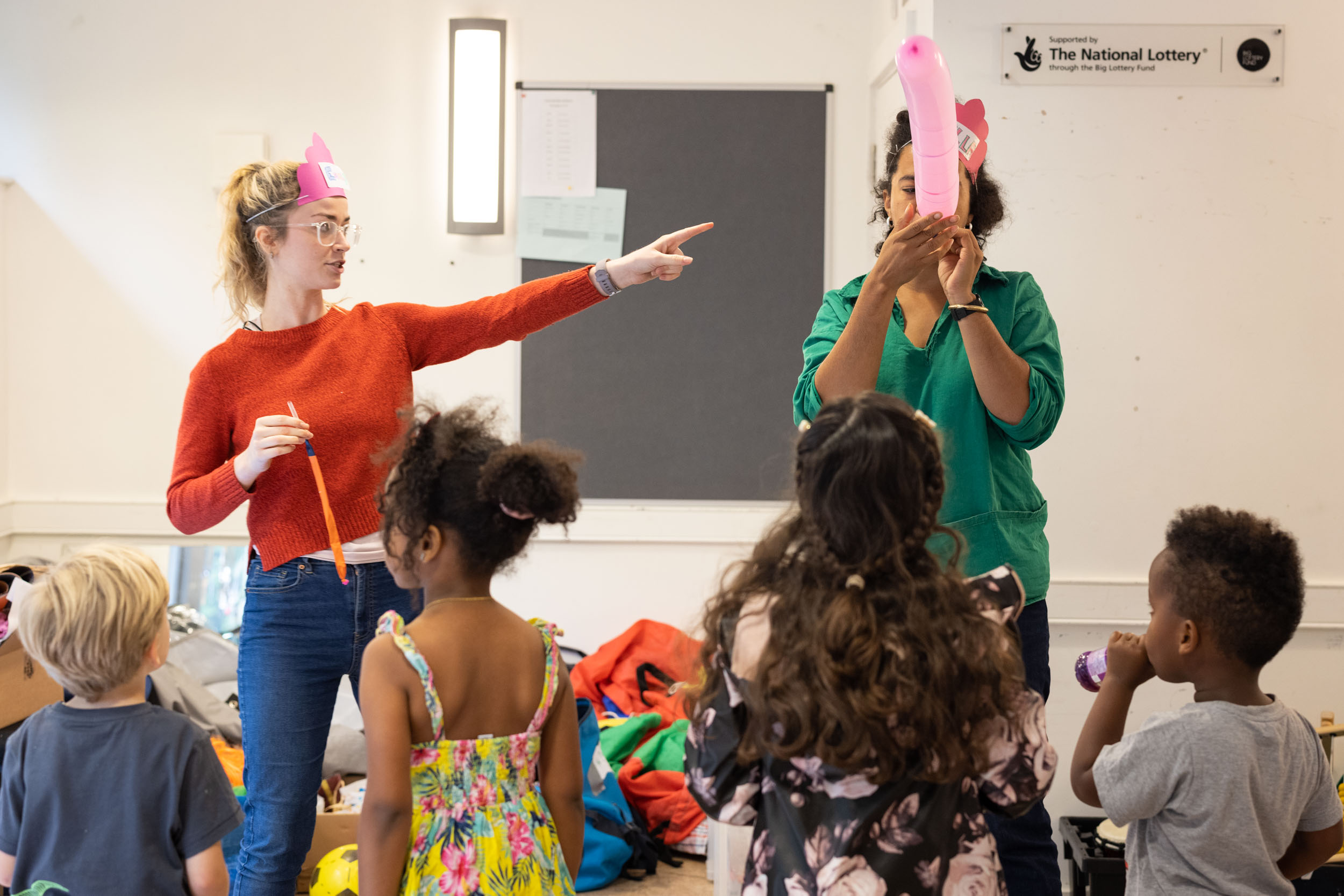Our intern, Filip, interviewed our Nest Project Coordinator, Rebeka. The Nest Project started in August 2022 and is one of SLRA’s newest projects.
Take 3 minutes to learn more about the Nest project, its aims, its challenges and early achievements.
What is the Nest project?
“The Nest project is a 3-year-long collaborative project based in established community venues and aims to make immigration advice more accessible by providing legal advice in places that are familiar, comfortable, and known to the families we aim to reach.”
Which groups are you trying to reach with the Nest project?
“The Nest project is created for families who have lived in the UK for several years but face barriers to access free and high-quality immigration advice. The specific group we aim to work with are families with at least one child (10-years or under), and who are based in Lambeth or Southwark. There are several reasons why families face barriers to access immigration advice – for example some families are either afraid of accessing immigration advice due to their current immigration status and/or are intimidated by the process of applying for a specific immigration status. Another reason is the lack of information where to find and to access high-quality and free immigration advice.”
What is the aim of the Nest project?
“The project is a result of our own research at SLRA that highlighted that one of the main causes of poverty for migrant families are barriers to access good quality immigration advice. The Nest Project’s aim is therefore to decrease poverty in these communities due to their immigration status. Furthermore, it often makes it easier for families to access and to trust services that provide immigration advice and other support, if these services work in these communities. Another aspect of the Nest project is to build up the capacity within communities to first better understand their immigration situation and secondly to equip them with the knowledge they need to access the right immigration advice.”
What are the partner organisations of the Nest project?
“We work with a couple of different organisations such as the Southwark Law Center, Citizens UK, and Project 17. We are all experts in different issues that are important when working with migrant communities. Southwark Law Centre provides high-quality immigration advice and legal representation; Project 17 gives immigration advice and supports families to access additional help regarding finance and housing; Citizens UK is an alliance of local organisations and they mainly support with promoting the project, building trustful relationships between the communities and organisations, and referring people to the Nest project.
Finally, there are we – SLRA. We are responsible for the design, delivery, and development of the Nest Project. I also operate in my capacity as an immigration adviser to give direct advice to families, as well as second-tier advice to our community partners. Another aspect of our work is to deliver training within the communities for example to the practitioners that work with the families. A couple of weeks ago, I led a training with six family-service-officers who work in primary schools across Lambeth.
Hence, many organisations and people are involved in the Nest project that obviously comes with some challenges but we can say that after more than six months in the project, the overall process is really positive and we benefit from the different expertise within our team.”
What are challenges that people face that you are working with? And how does the project respond to these challenges?
“I am still learning as I go along. The most obvious barrier that the people we work with, face is language. However, one bigger issue than language is misinformation within their own communities. Immigration advice in the UK is particularly complex, individualised, and difficult. Therefore, receiving poor immigration advice or at least not the right immigration advice has an extremely negative effect on the decision of someone’s immigration decision. For example, if someone forgets to hand in all the evidence that is needed, this can have a negative impact on the immigration decision and often means that renewing their visa gets denied. Furthermore, some immigration options that families could apply for, are not obvious without accessing high-quality immigration advice because the UK immigration system is extremely complex.
With the Nest project we want to response to these different challenges. The first response is that we support people with their current immigration issues and other problems that are caused by their unsolved immigration status. The second response is that we provide information for migrant communities and people working with migrant communities at an earlier stage so that they are able to access immigration advice when they need it and not when they are already in a crises. Especially the second response is based on our SLRA value: agency. And agency is only given if people have knowledge: Knowledge is power! – So far, the Nest project has already shown really positive results and many families come forward who have never had any immigration advice before.”
Can you already share a success story for Nest project within these first six months?
“Yes, of course. We already have some really positive stories and as I said before the project is developing really positive. I have met an expecting mother who was homeless a couple of months ago in November. When we first met, she stayed at a friend’s house and never had any immigration advice. Within two months of our support, we were already able to secure her an accommodation, referred her to an organisation that provided her with a package of items and clothes for her expecting baby, and she now has an immigration lawyer that supports her with her own immigration application. I feel a lot has changed in her life in the very short time. This case demonstrates how important and valuable the Nest project is!”

